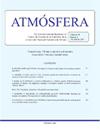不同学习方法和经验模型估算太阳辐射的比较分析
IF 1
4区 地球科学
Q4 METEOROLOGY & ATMOSPHERIC SCIENCES
引用次数: 2
摘要
太阳辐射是到达地球的能量中最重要的元素,它被用于水文模型、农业、太阳能系统和气候研究。本研究比较了两个经验方程- angstrom和Hargreaves-Samani方程-以及三种机器学习模型-人工神经网络(ANN),支持向量机(SVM)和长短期记忆(LSTM)-的性能。为每个经验方程中使用的变量开发了各种学习模型。在本研究中,使用了土耳其六个站点的月数据,其中三个站点接收太阳辐射最多,三个站点接收太阳辐射最少。从各模型的均方误差(MSE)、均方根误差(RMSE)、平均绝对误差(MAE)和决定系数()值来看,LSTM是最成功的模型,其次是ANN和SVM。在Hargreaves-Samani方程下MAE为2.65,在LSTM模型下MAE降至0.987,在Angstrom方程下MAE为1.24,在LSTM模型下MAE降至0.747。研究表明,即使在数据有限的情况下,深度学习模型也比经验方程更适合使用。本文章由计算机程序翻译,如有差异,请以英文原文为准。
Comparative analysis of estimated solar radiation with different learning methods
and empirical models
Solar radiation, which is used in hydrological modeling, agricultural, solar
energy systems, and climatological studies, is the most important element of the energy
reaching the earth. The present study compared, the performance of two empirical
equations -Angstrom and Hargreaves-Samani equations- and, three machine learning models
-Artificial Neural Networks (ANN), Support Vector Machine (SVM), and Long Short-Term
Memory (LSTM)-. Various learning models were developed for the variables used in each
empirical equation. In the present study, monthly data of six stations in Turkey, three
stations receiving the most solar radiation and three stations receiving the least solar
radiation, were used. In terms of the mean squared error (MSE), root mean squared error
(RMSE), mean absolute error (MAE), and determination coefficient () values of each
model, LSTM was the most successful model, followed by ANN and SVM. The MAE value was
2.65 with the Hargreaves-Samani equation and, decreased to 0.987 with the LSTM model
while MAE was 1.24 in the Angstrom equation and decreased to 0.747 with the LSTM model.
The study revealed that the deep learning model is more appropriate to use compared to
the empirical equations even in cases where there is limited data.
求助全文
通过发布文献求助,成功后即可免费获取论文全文。
去求助
来源期刊

Atmosfera
地学-气象与大气科学
CiteScore
2.20
自引率
0.00%
发文量
46
审稿时长
6 months
期刊介绍:
ATMÓSFERA seeks contributions on theoretical, basic, empirical and applied research in all the areas of atmospheric sciences, with emphasis on meteorology, climatology, aeronomy, physics, chemistry, and aerobiology. Interdisciplinary contributions are also accepted; especially those related with oceanography, hydrology, climate variability and change, ecology, forestry, glaciology, agriculture, environmental pollution, and other topics related to economy and society as they are affected by atmospheric hazards.
 求助内容:
求助内容: 应助结果提醒方式:
应助结果提醒方式:


